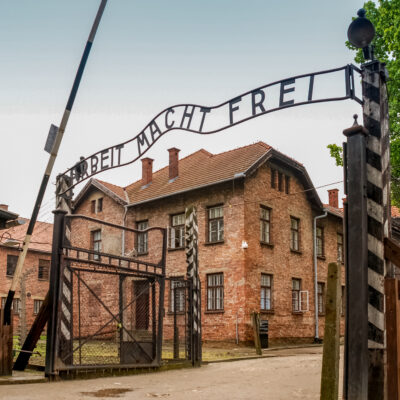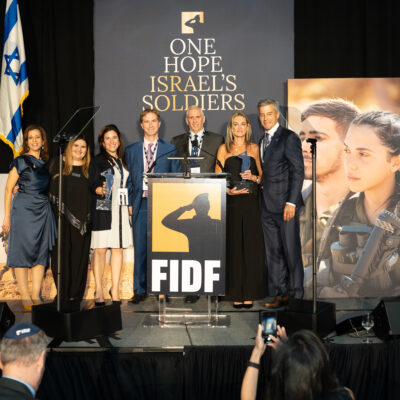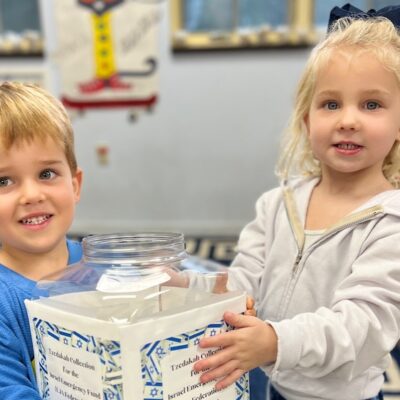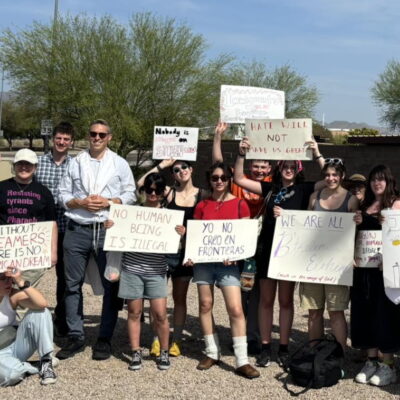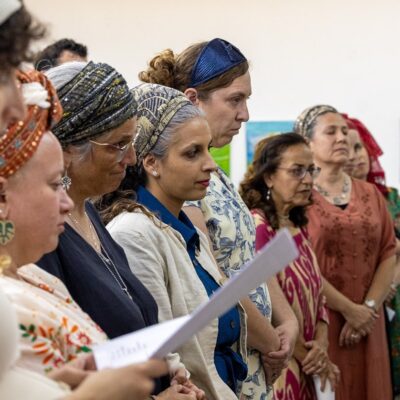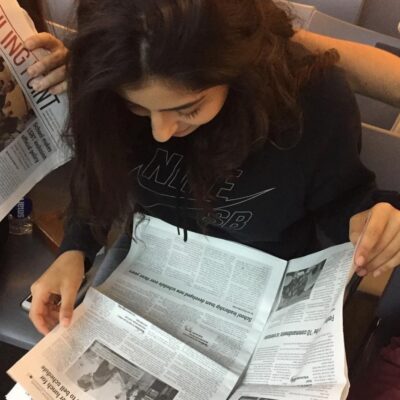Getting Back on the Balancing Beam

By Rabbi Jacob Lieberman and Rabbi Isaac Saposnik
To say that the energy in the teatron (theater) was joyful and electric is an understatement. Campers put their hearts and souls into their performances, and when they were in the audience, they enthusiastically supported their friends and siblings from other bunks. This year’s “Camp Sing” got off to a great start. We hold it at the end of the session; each cabin receives a song to perform in front of the rest of camp. Over the last few years, the performences have gotten better and better – and this year was no exception. There was dancing, laughing, and applause.
And then, all of a sudden, one bunk’s performance went awry. In an otherwise lovely dance rendition of their song, the group brought out on stage a particularly masculine male counselor dressed in a sparkling blue dress and a blonde wig.
When we were kids, this kind of thing was commonplace in school and at summer camps and, is still very much a part of the culture at many (if not most) camps today. At our “Camp Sing”, however, the few stray laughs from when the counselor first took the stage turned quickly to silence – and discomfort. It was as if all the air had been sucked out of the room; the tension was palpable. When the dance ended, camp leadership called for an intermission so Isaac and his team could check in with senior staff about what had just happened.
The scene hit Jacob particularly close to home. Although this was his first year on camp faculty, as a transgender rabbi and a parent to two Ethiopian kids, Jacob has long been a fan of Camp JRF’s work around diversity and inclusion – especially the ways we create a joyful and welcoming environment for Jewish kids of color and for LGBTQ campers and families. While the room waited, Jacob’s four-year old son, wearing purple from head to toe, climbed the stairs from the seat next to his brother in the front row and into Jacob’s arms. For Jacob and his family, what happened felt personal … but it wasn’t only about them.
Before the performances continued, Isaac spoke to the campers and staff forthrightly. While the “Camp Sing” had always been an incredibly positive community building activity, something went wrong this year. One of the dances we had just watched portrayed cross-dressing in a way that was meant to poke fun. For some people, he said, clothes are a huge part of who they are and how they express themselves. When we poke fun at people who cross-dress or wear clothes that match their sense of their gender (but not necessarily what society deems “the norm”), we have no idea who throughout our camp community – campers, staff, parents, siblings, friends – is being wounded, perhaps even dying inside, by such jokes. And when they die inside, so do we. At Camp JRF, treating someone that way simply isn’t, as we like to say at camp, “how we be.”
The room was silent. The concern on campers’ faces was apparent; they understood the impact of the moment and the power of the response. And they understood the importance of treating everyone with kindness. Standing near the back of the room, Jacob felt tears well up in his eyes and his voice catch in his throat. While he knew that the camp leadership would have preferred for this incident never to have occurred, he also knew that something incredible was happening. Diversity and inclusion are practiced more like a gymnast on a balance beam than like a spectator ascending on an escalator. Missteps create opportunities to find new footing, flexing our muscles and demonstrating to others what it means to be an ally. These moments give everyone present the opportunity to experience the kind of difficult moments that, unfortunately, happen all over the world. But within the confines of a supportive, nurturing, and compassionate Jewish community that clearly and decisively stands up for the values that are woven into its very fabric, such moments become learning opportunities.
What happened next? We continued with the evening. The kids danced, the counselors laughed, and the room broke into thunderous applause. With a big drum roll, we crowned the winners of the evening and sent everyone back to their cabins for the night. And we woke up the next morning and began the day, as a line in Anne of Avonlea says, “fresh, with no mistakes.”
Don’t misunderstand – nobody who was there will soon forget what happened that night. But returning to regular camp life is an important reminder that we must continue to move forward, especially after a challenging moment. Starting fresh allows our kids to realize that we can (and do!) make mistakes and, when we do, we can work to right the wrong. We can get ourselves back on the balance beam and finish the routine. And when we’re firmly back on solid ground, we may still have that lump in our throat from the misstep – but we’re proud of how we got back on track and finished strong.
For both of us, being fully present in the camp community and being part of an incredible moment like this was a powerful reminder that we can create safe and supportive Jewish communities where being who you are is fully possible for our youth – for a summer and as a model for a lifetime.
In every community, there are challenging moments that surprise us and take our collective breaths away. But there are places like this, like Camp JRF, that stand up and celebrate each of us in all of our diversity and wholeness. As camps around the country end for the season, we say “hazak hazak v’nitkhazek” – may we go from strength to strength and, together, may we make our children, and our communities, stronger.
Rabbi Jacob Lieberman serves as rabbi of Reconstructionist Congregation Beth Israel in Ridgewood, NJ, and Director of Board Relations for the Reconstructionist Rabbinical College and Jewish Reconstructionist Communities. He spent a week this summer on the rabbinic faculty of Camp JRF.
Rabbi Isaac Saposnik is Executive Director of Camp JRF. He is a graduate of the Reconstructionist Rabbinical College and the Foundation for Jewish Camp’s Executive Leadership Institute. He started going to Jewish summer camp when he was eleven-years-old and he hasn’t stopped yet!

